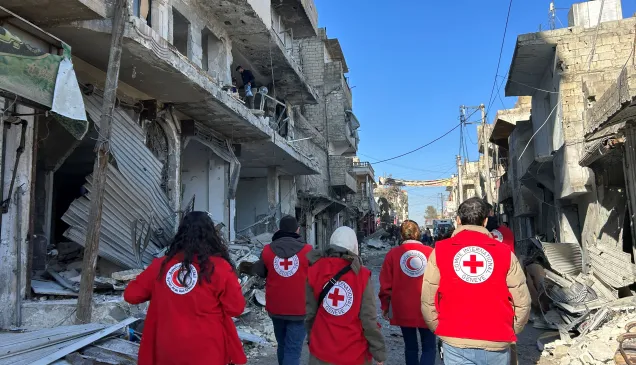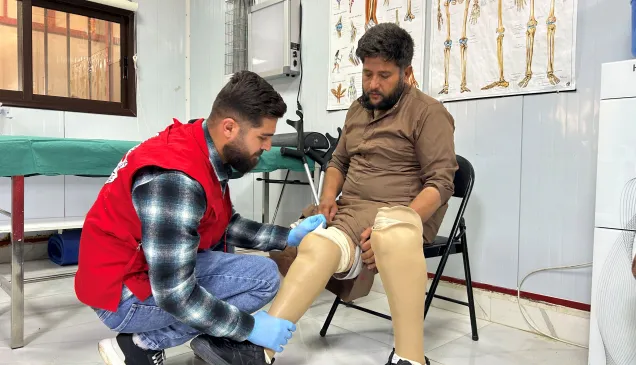Syria: When access is key, assistance is a lifeline
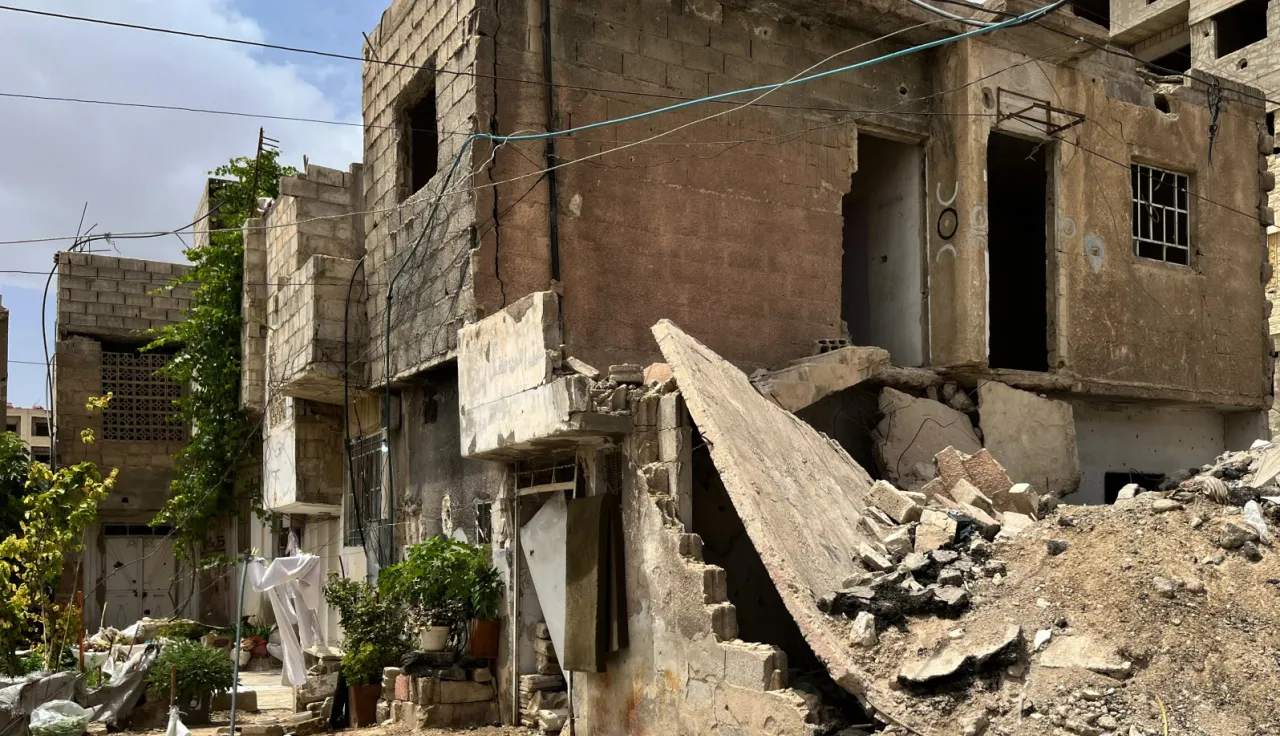
For millions of Syrians, life in a country strained by consequences of years of conflict and affected by natural disasters and emergencies, remains a daily struggle. While clashes ebb and flow, hardships continue to grow.
Families are exhausted by destroyed homes, failing public services, lost livelihoods, and deepening economic struggle, facing no choice but to find ways to cope. Remnants of war are another risk that haunts people, holding back some from returning to their homes and reminding others how a single misstep can mean a loss of life or a lasting injury.
The growing needs in Southern Syria
The last escalation in southern Syria has left thousands facing challenges when it comes to moving in and out of their own towns, sometimes struggling with limited, or even no access to life’s basic necessities.
With tensions rising at times around the main access roads and within different towns across the country, reaching those in need often becomes a challenge. Our teams had to deal with severe delays in aid delivery at times on account of security requirements. Affected civilians reported that the road to their towns hasn’t been safe, disrupting the import of food and essential goods into their areas of residence. As a result, prices in local markets have doubled or even tripled making it even harder than before to put food on the table. “On a normal day, making ends meet is a challenge and recent tensions have caused food prices to skyrocket, even basic vegetables are now unaffordable. One kilogram of tomatoes cost three times what it did before the recent tension, if we can find any at all ,” a father from rural Sweida told us.
Yet while those who remained face worsening struggles, those who fled their homes in search of safety had to deal with hardships just as severe. Many families escaped with little to no belongings, already burdened by harsh economic conditions.
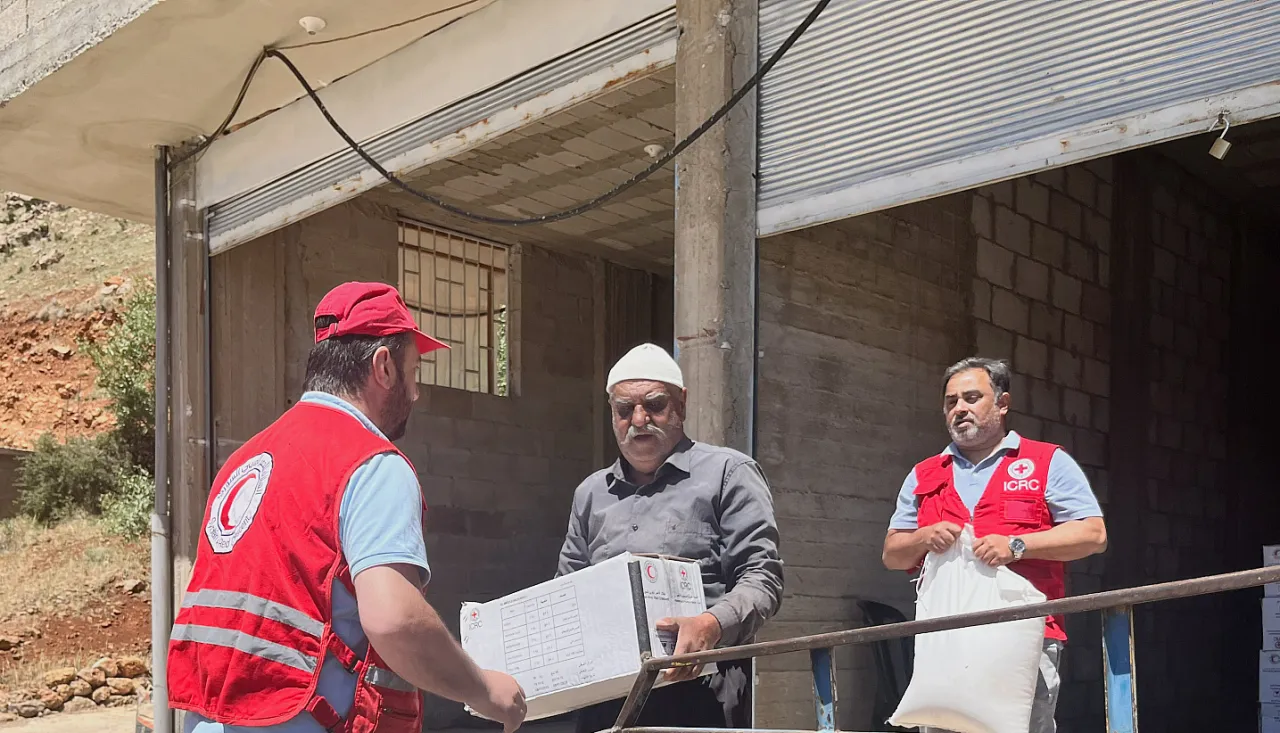
Photo: Dania Kareh
Photo: Dania Kareh
A lifeline through hardships
Reemeh is a town in rural Damascus that received a wave of displaced families from Sahnaya who had fled amidst escalating tensions.
Families of Reemeh, despite their own hardship, opened their doors, sharing what little they have, whether it was a loaf of bread or a blanket. Basheer, 45, from Reemeh, is sheltering three families who fled the clashes in Sahnaya in the two extra rooms of his home. “The arrival of families came at a difficult time. We don’t work our lands at the end of the season and only rely on stored food from last summer to get through winter. But when families arrived from Sahnaya, our supplies were already running low. However, we did our best to help them and shared what little we had among us ,” he explained.
As for those who fled their towns due to these clashes , they had to leave behind not just their belongings but also their livelihoods, meaning that accessing basic needs, especially food, will be a struggle. The International Committee of The Red Cross (ICRC) together with the Syrian Arab Red Crescent (SARC) delivered urgent humanitarian aid to the displaced. Yet, the needs remain vast, and much more must be done to support those still struggling.
Ahed, 37, had to flee her home in Sahnaya, due to rising tensions in the town. “Pregnant and afraid, I barely managed to leave with my husband and two boys. The situation was chaotic that I couldn’t take any belongings, not even my children’s clothes,” she told the ICRC.
Now, she’s staying in an unequipped house offered by a relative in Reemeh. With just three weeks until she gives birth, she has nothing ready for her baby, no clothes, no diapers, and no money to buy even the most essentials. “I have no idea when it will be safe to return home, and giving birth in the midst of such uncertainty weighs heavily on me and my family," she added. Ahed received food and hygiene items from ICRC, calling the support ‘an aid that arrived just in time.’
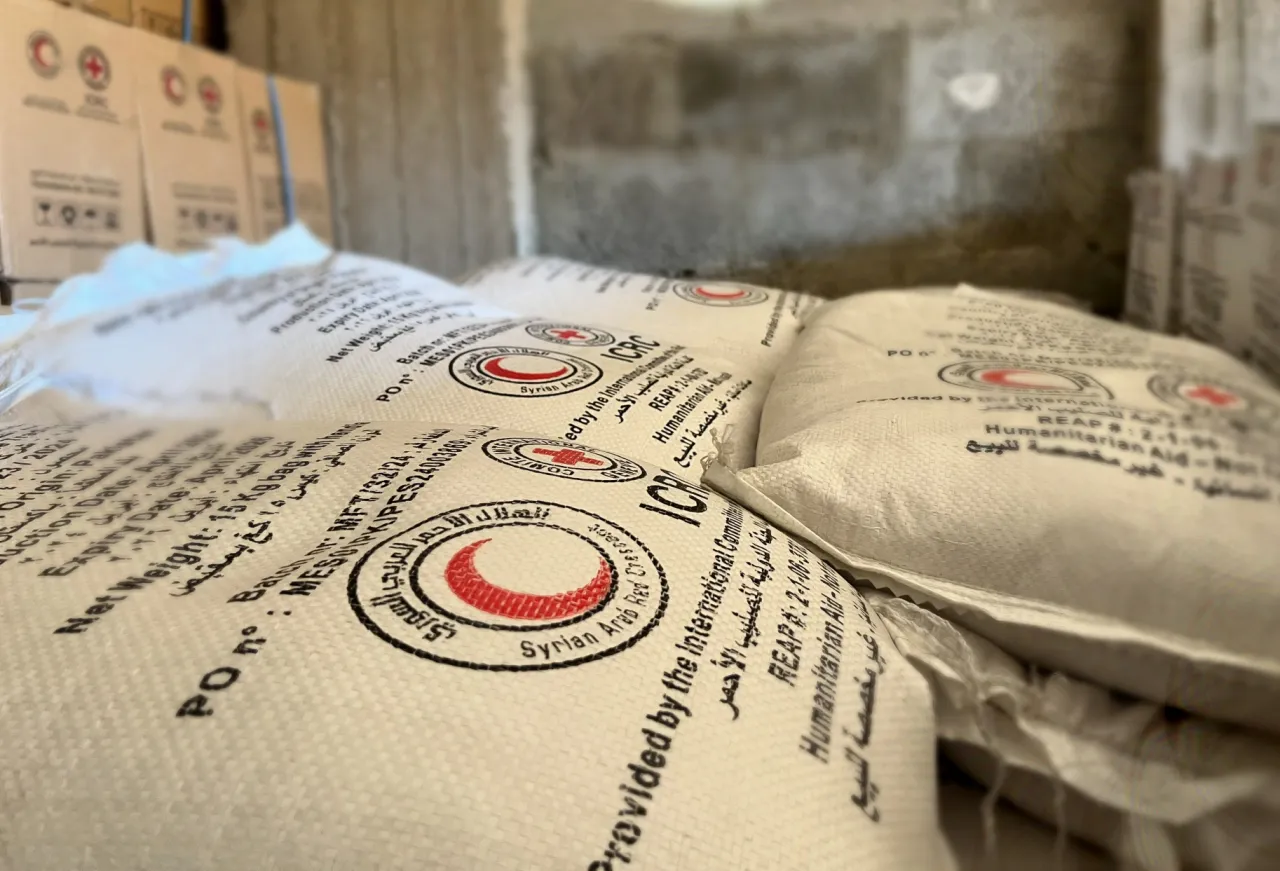
Why humanitarian access matters
Restricted access - whether it is to aid or to daily essential services - deepens the suffering of communities, pushing them further into hardship. It prevents aid organizations from assessing needs properly and responding effectively.
When instability makes access difficult and at times even impossible and when tensions slow down essential response, families are left waiting for support and injured are left without urgent medical attention . Unimpeded, regular, and timely access for the delivery of much needed aid for affected communities is therefore key. For the ICRC, humanitarian aid has always been more than just a box of canned food or a mattress we deliver in times of emergencies. It’s more about connecting with people and doing all we can to provide much needed support till displaced families feel secure to return to their homes voluntarily and safely.

